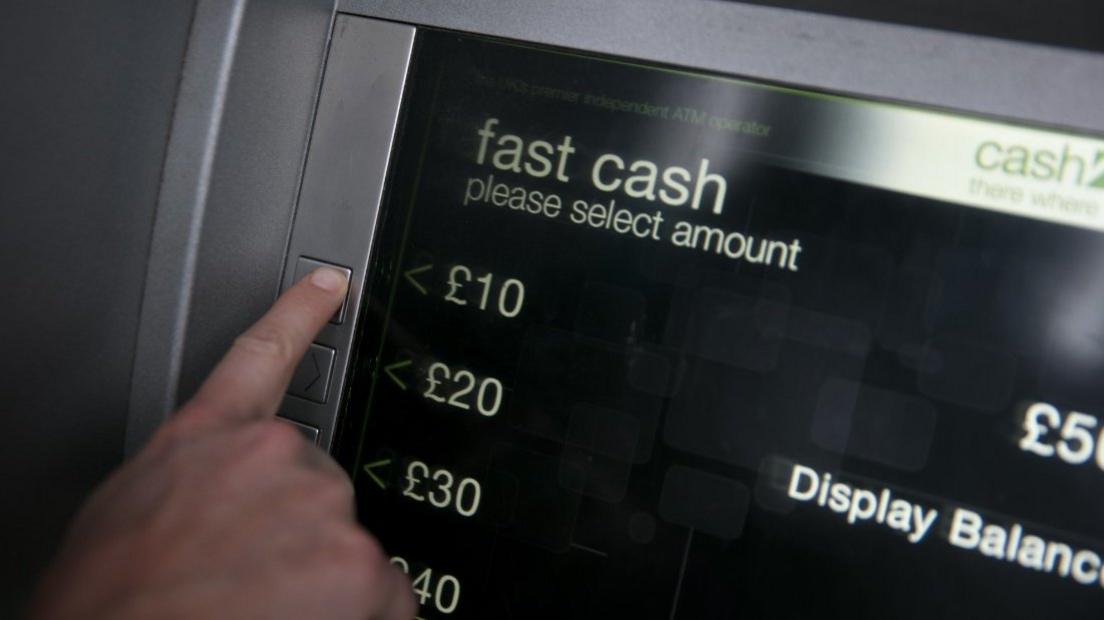Post Office says a third of its cash machines will close
- Published
- comments
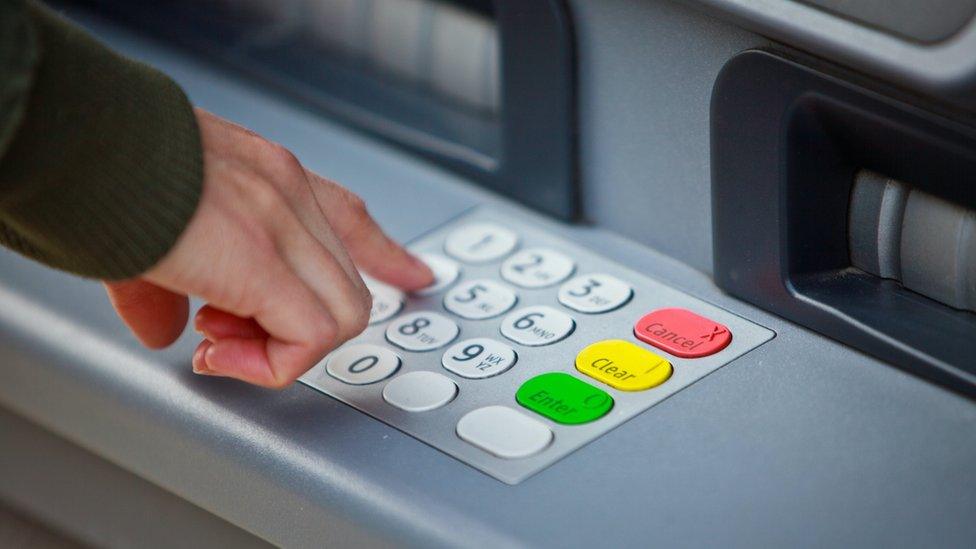
The Post Office is to cut a third of its cash machines in the next 18 months with 600 ATMs to be shut by March 2022.
The move has raised concerns that rural and deprived communities face being cut off from access to cash.
ATMs set for closure are little-used and have other free cash facilities close by, the Post Office said.
It added that in areas where it is closing cash machines, customers can still withdraw cash over the counter free of charge.
Martin Kearsley, banking director at the Post Office, said the business was keeping 60 non-commercially viable ATMs "to serve the community's needs".
Currently the Post Office does not run any of the cash machines at its branches; they are operated by Bank of Ireland, which is pulling out of the business.
That has prompted the review, which will mean closing 600 ATMs, while the Post Office has said it will spend £16m to maintain and upgrade other machines.
It said by mid-2023 all ATMs it keeps will be replaced with new devices that have the latest cash dispensing technology and security measures.
"This is one of the largest investment programmes in the free to use ATM market for over a decade," said Mr Kearsley.
The Post Office will also become a member of the Link ATM network.
ATM usage slump
Cash use has declined sharply during the coronavirus pandemic, with many businesses asking customers to pay by alternatives such as cards.
Correspondingly the use of cash machines has slumped. In central London it has fallen by up to 80%, according to figures published by Link, the cash machine network.
Across the UK, cash machine withdrawals between April and September fell by 48% compared to the same time last year.
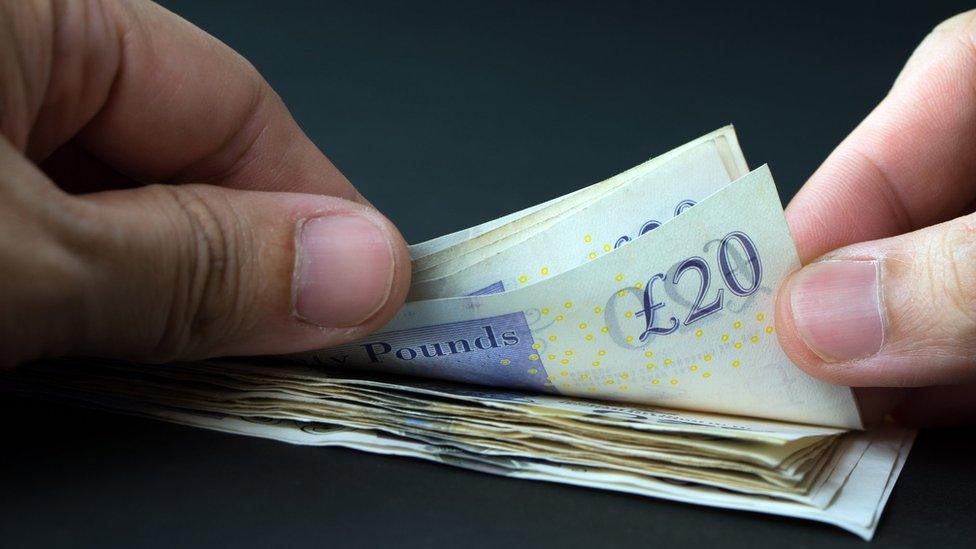
In London and Westminster the number of withdrawals dropped 81%, while there were 71% fewer in Saffron Walden and Glasgow Central.
"Every city, town and village has a different story," said Link's head of financial inclusion Nick Quin. "In places like city centres, it's less busy overall, so there are fewer people using ATMs.
"In some rural areas, though, there have been fewer tourists or perhaps the local shop, where the ATM is hosted, temporarily closed."
There are currently 42,000 free-to-use ATMs across the UK and 13,000 charging ATMs.
In the early stages of the pandemic around 7,200 ATMs closed. These were mainly in premises that shut due to government restrictions, such as shops, airports, garden centres, pubs, or they were closed for social distancing purposes, such as at train stations and supermarkets.
By the end of September more than half of them had reopened.
Access to cash
"What's clear is that there are places around the country, where more people rely on cash," said Link's Nick Quin.
"They're often some of the most deprived places in the country. That's important because while there are more people who prefer to use cards and shop online, there are a lot of people out there where digital payments still don't work."
The Access to Cash Review revealed eight million people were at risk in the UK from the demise of cash.
"Our research demonstrates that the majority of people are uncomfortable at the pace at which we are moving towards a cashless society," said David Fagleman, from financial consultancy Enryo.
"Not everyone is comfortable with making digital payments and we have to ensure that the rush to digitise does not leave people behind. Cash is still a very important payment method."
But going cashless also has benefits, said Amy Gavin from fintech consultancy 11:FS. "Electronic payments are faster, some feel safer not carrying cash around, and electronic payments can also help consumers with budgeting."
However, she added: "It remains true that a reduction in cash use in society disproportionately negatively impacts its most vulnerable segments - such as older people and those with very low incomes who use cash to manage their budgets."
The government has proposed to legislate to protect cash and one option is for cashback to become more widely available in shops.
- Published15 October 2020

- Published23 September 2020

- Published11 August 2020
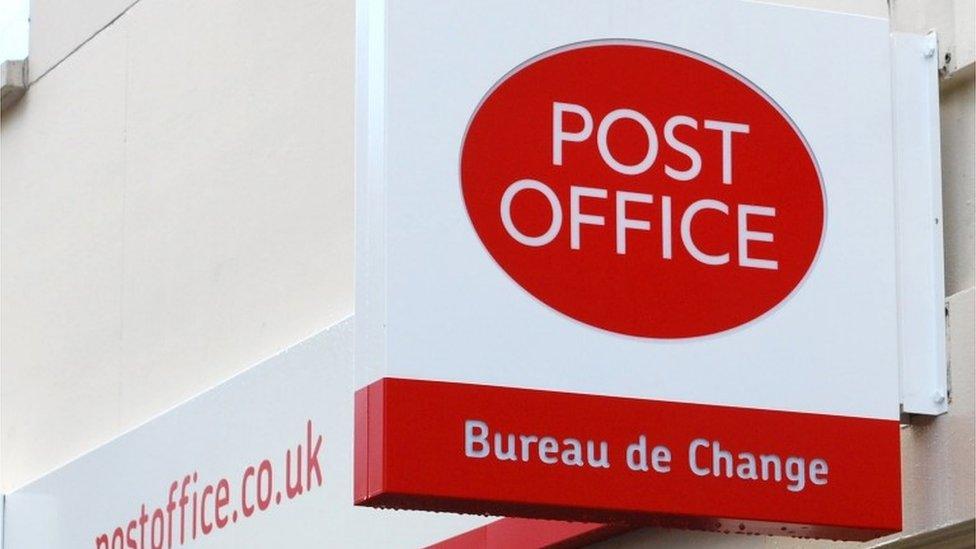
- Published17 June 2020
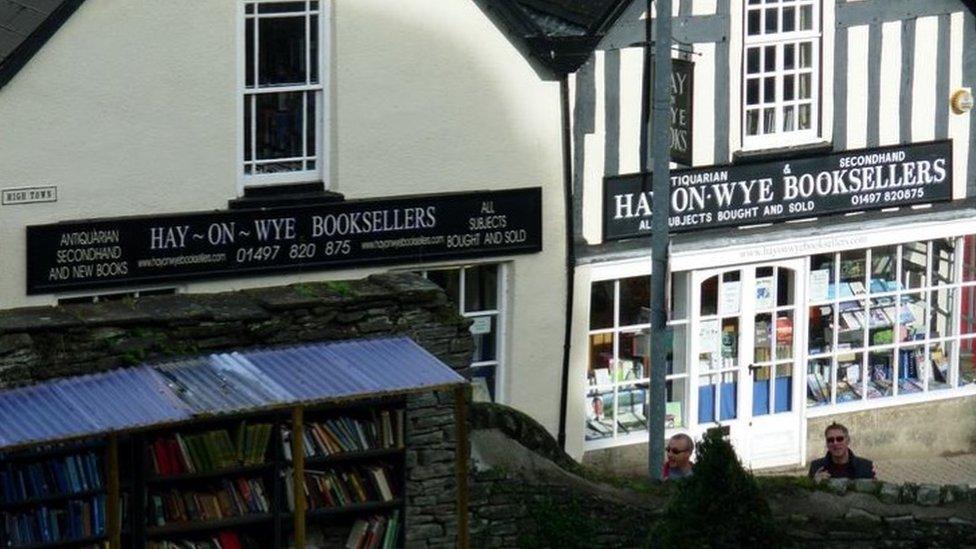
- Published17 June 2020
